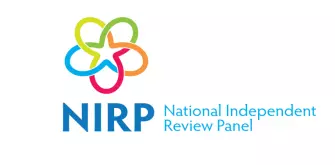
As the harrowing details of the ‘Emily’ case come to light, the Irish Association of Social Workers (IASW) calls on Government to introduce adult safeguarding legislation and in the interim, calls on the HSE to urgently reform current safeguarding structures.
Laws are essential:
The evidence is clear; laws are essential to protect adults at risk. As we saw in the cases of Aras Attracta, ‘Grace,’ ‘Brandon,’ Naas Hospital and now in the ‘Emily’ case, staff in multiple settings across the country have failed to identify, report, and protect people from abuse.
The Irish Association of Social Workers (IASW), Safeguarding Ireland, the HSE itself and multiple other stakeholders have repeatedly called on Government to introduce adult safeguarding legislation as a priority. In the gap of such action, people continue to experience preventable abuse. How many more people will experience harm before the Government listens to experts and takes action?
Safeguarding Reform is essential in the HSE
Speaking following the publication of details of the ‘Emily’ case, IASW Chairperson, Vivian Geiran stated: ‘It is abundantly clear that the expertise required to deliver essential safeguarding reform is absent in current HSE management structures at both CHO and national level.
Safeguarding concerns will always occur across society, including in nursing homes, however, as the ‘Emily’ case shows so clearly, perpetrators of abuse flourish in organisations with a weak safeguarding culture. This is not solely a frontline service issue; the problems start at the top and are thereby allowed to permeate across the wider HSE structure.
Seven years after the ‘Brandon’ whistle-blower came forward and three years after the rape of ‘Emily,’ the HSE are only now developing a sexual safety policy for care settings.
The failure of national HSE management to complete such a basic and fundamental safeguarding measure following 108 sexual assaults identified in the Brandon case and the horrifying rape in the Emily case, speaks volumes about the safeguarding response at national level.’
Vivian Geiran continues ‘This is the second NIRP report which recommends a shift from the medical model to a social care model, with good reason. It is clear that reports of abuse by residents in the Emily case were ignored, as women were viewed only through the lens of frailty and dementia, their personhood was invisible, their voices unheard in the system designed to care for them.’
‘This is a systemic issue. While the 2022 HSE annual report on adult safeguarding shows an overall 18% increase in adult safeguarding concerns received by Safeguarding and Protection Social Work teams, the report also shows a steady six-year decline in reporting rates from HSE services such as nursing led services, primary care, and hospital settings. Current governance is failing adults at risk of abuse in care settings.’
According to the National Independent Review Panel, the advice and expertise of the Safeguarding and Protection Social Work team in the ‘Brandon’ case was effectively ignored. Social workers continue to experience unhealthy organisational culture, reporting to senior managers without appropriate safeguarding expertise who may limit both safeguarding activity and the scope of reviews.
Vivian Geiran added:
‘The HSE must reform and provide a competent and accountable governance structure to support best safeguarding practice and best outcomes for adults at risk of abuse. The practice of social workers reporting to less qualified managers must end.’
While recognising that Bernard Gloster has brought strong understanding and knowledge of adult safeguarding to his role as CEO of the HSE, IASW will seek to meet with him to support efforts to improve safeguarding practice.
IASW now calls for:
1. Government to act urgently to introduce adult safeguarding legislation and support more people to live in their own communities through home care legislation.
2. HSE CEO – Bernard Gloster must conduct a review of safeguarding governance structures and introduce national operational social work leadership via the role of Chief Social Worker to ensure that the buck stops at national level with a qualified safeguarding expert, and
3. (Bernard Gloster) to commission an independent assessment of the experiences of the Safeguarding and Protection Team in this (‘Emily’) and other NIRP cases to understand frontline staff experiences of unhealthy safeguarding culture in HSE management, and to implement the lessons learned.
IASW Spokesperson: Vivian Geiran via the office on 086 0241055
-Ends-